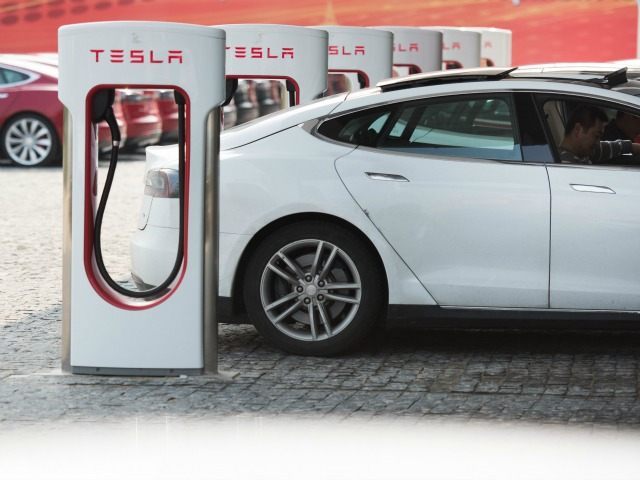Would you want to flee a hurricane in a gas-fuelled pick up? Or a battery-powered Tesla?
Last week, drivers of the latter got lucky when they were bailed out of disaster courtesy of Tesla’s canny marketing department. (h/t Eric Worrall at Watts Up With That?)
Tesla drivers who fled Hurricane Irma last weekend received an unexpected lesson in modern consumer economics along the way. As they sat on choked highways, some of the electric-car giant’s more keenly priced models suddenly gained an extra 30 or so miles in range thanks to a silent free upgrade.
The move, confirmed by Tesla, followed the request of one Florida driver for a limit on his car’s battery to be lifted. Tesla’s cheaper models, introduced last year, have the same 75KwH battery as its more costly cars, but software limits it to 80% of range. Owners can otherwise buy an upgrade for several thousands of dollars. And because Tesla’s software updates are online, the company can make the changes with the flick of a virtual switch.
But that’s easy enough to arrange when hardly anyone drives the things.
What happens in the near-future when, we’re told, everyone is going to be driving electric cars – whether they like it or not?
Well a German IT expert called Hadmut Danisch has been doing the math. And the result isn’t pretty.
It will, as Lubos Motl notes, lead to “Mass Death on the Highways.”
With fossil fuels, the car’s range is far greater, fueling time is just minutes and extra canisters of fuel also can be easily brought along. Power outages would not interrupt petrol stations because the gas pumps can be easily powered by portable fossil fuel-powered generators.
But with electric cars it would be a totally different story. If a hurricane hit, power lines would go down, knock out the power grid and thus would make the charging of electric vehicles impossible. Solar panels would fly off buildings as roofs are torn off. Wind parks would automatically turn off because they are not designed to operate in hurricane force winds. Many wind towers would simply buckle in the 250 km/hr wind gusts, meaning the green power supply infrastructure would of course get destroyed. In summary, solar panels and offshore wind parks in the Caribbean and Gulf of Mexico make about as much sense as raising sheep on a wolf-farm.
And after the hurricane passes, electric cars would remain immobile because the power grid would be knocked out. Recharging vehicles would be impossible. Emergency vehicles also would quickly lose their power charge and sit idle. Recovery and clean up efforts would take months, if not years. The toll on human life would be unimaginable.
Welcome to your bright green future. Underwater in an electric car.

COMMENTS
Please let us know if you're having issues with commenting.